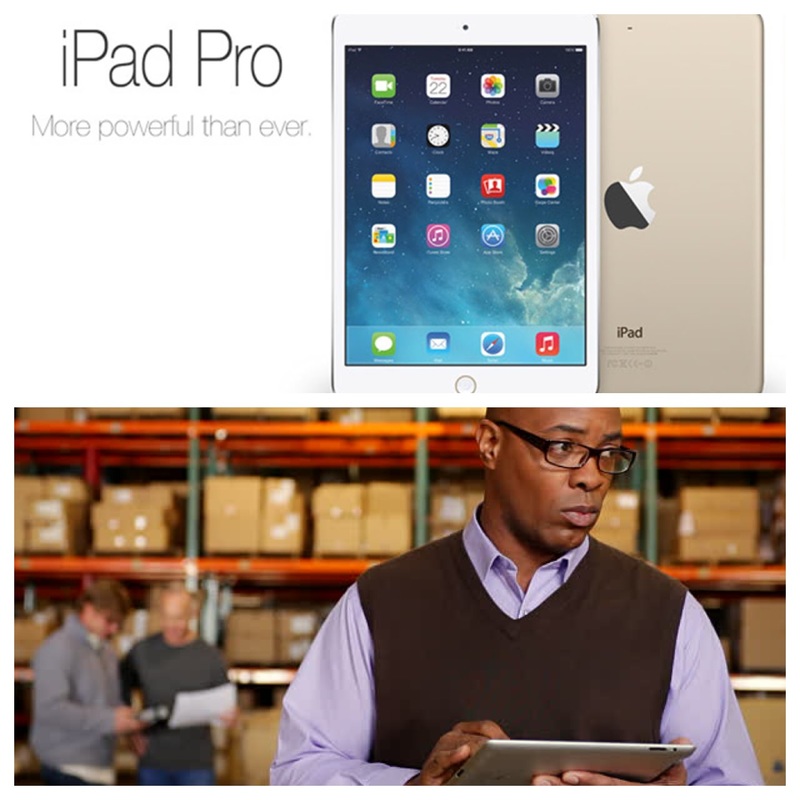Just about every city in America has warehouse workers. Even if you don’t manufacture a single thing in your particular city, you still have to import, store, and ship all manner of items. And every single movement must be logged and archived. Every receipt, transfer, work order completion, and shipment. And inventory isn’t just moved, it’s also counted, lost, or damaged which is more paperwork that someone needs to enter into the system. There are probably more warehouse workers in one city than all the astronomers and movie makers in the world.
I can see why Apple has shied away from going after the enterprise clerical ranks. The Microsoft Windows stranglehold in the office was just too strong. But Windows has never been able to help much in the warehouse. Forklift drivers aren’t creating spreadsheets or writing long letters in Word. Even if they were, laptops are just too cumbersome to use from the drivers seat or while standing. It’s the same reason that sales people who work from their cars prefer iPads. I don’t care how light and fast Apple makes their new MacBook it will always be inferior to an iPad when sitting in front of a steering wheel.
In today’s world companies either have an ultra-expensive system with bar codes and scan guns or they do things the same way that they were done in 1952. There is no middle ground. The bar code and scan gun system that Walmart brought to prominence is nice if you can afford it. It allows for instantaneous inventory information. However, those scan guns cost thousands of dollars to replace and the learning curve on one of those things is steep. The archaic software that is still run today in most warehouses would look right at home on a TRS-80 and doing anything requires digging through multiple menus.
There has got to be a happy medium between the clunky scan guns and keeping a notebook and pencil in your pocket. One scan gun costs two or three times what you’d pay for an iPad so the situation in the warehouse is the reverse of the office. The Apple device is actually less than what the alternative is. In the office, Apple devices tend to be more expensive than the incumbent Windows laptops.
And you want to see what can make a grown man come to tears? Take this enthusiastic, excited new employee and give him a fifteen minute crash course on how to process various inventory transactions. Then as he struggles to keep the various menu options straight he’ll proceed to cause problems in the system for his manager. The enthusiasm will slowly fade away to worry that he’s not going to be able to handle this new job that he desperately needs.
I'm not writing about this because I think Apple needs any help in adding to their $200 billion cash hoard. I’m coming from the perspective of someone who’s worked in the manufacturing industry for over twenty years and sees every single company struggling with the same issues. Chiefly, how do you get mobile workers to accurately enter data into the system in a disciplined manner? And if it was easy to teach new workers it would be too good to be true.
Tablets make a lot of sense for people who work on their feet all day or sit behind a steering wheel. Eventually, someone will do for tablets what Walmart did for scan guns. This future tablet champion will create a finely tuned system that gives them a competitive advantage in terms of both efficiency and cost. Then I know what's going to happen. Trade magazines will descend en masse and write articles on what they are doing and everyone will start to copy them.
What I don’t know is whose tablets will be used and what kind of software will it run?



 RSS Feed
RSS Feed